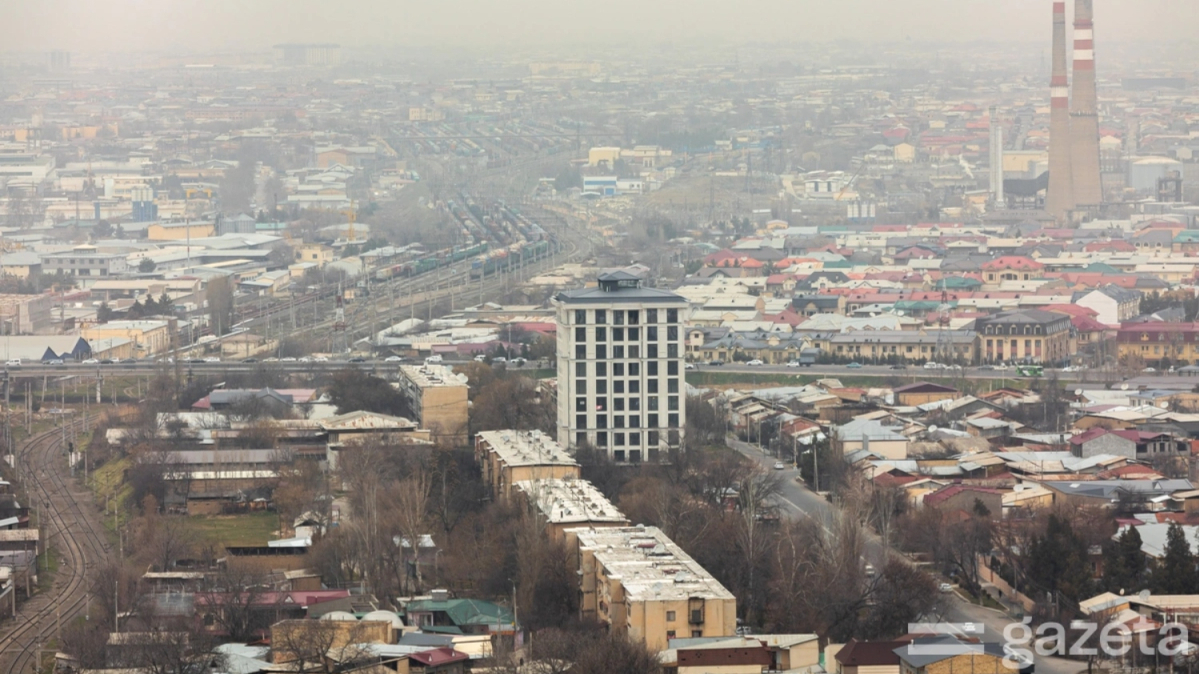live Qatar shoots down Iranian jets: All the latest news on the Iran strikes
The Middle East crisis intensifies after the deadly attack on Iran's Supreme Leader Ali Khamenei's compound on Saturday that killed him, ot...

Air quality in Tashkent deteriorated sharply with the Uzbekistan Hydrometeorological Service (Uzhydromet) reporting that concentrations of fine particulate matter exceeded national safety limits.
According to Uzgidromet the 24-hour average concentration of fine particulate matter 2.5 (PM2.5), (particles ≤ 2.5 micrometres) rose to 202 micrograms per cubic metre (µg/m³), about 3.4 times the national safe limit of 60 µg/m³. Larger PM10 (particles ≤ 10 micrometres) reached 373 µg/m³, approximately 20% above the threshold of 300 µg/m³.
The sharp decline was felt by residents who reported a burning odour in the air. Officials warned residents to limit outdoor activity for several days adding that the adverse weather conditions may cause elevated pollution levels for a few days.
The sudden spike in airborne particulates comes after several days when air quality had been near acceptable levels.
Uzhydromet claims the rise was driven by a temperature inversion - a scenario where cooler air becomes trapped beneath warmer air, preventing pollutants from dispersing and causing accumulation of fine particles.
The agency also warned that similar conditions are expected to persist in other parts of the country for the next few days.
Data from the World Bank show that in Tashkent, key human-caused sources of PM2.5 include residential heating (28%), transport (16%) and industry (13%), while wind-blown dust accounts for 36% in summer months.
Prior levels of fine particulate pollution have placed Tashkent among the world’s most polluted cities, with annual average PM2.5 readings far exceeding the World Health Organisation (WHO) guidance of 5 µg/m³.
Authorities urge residents and visitors to reduce outdoor time and wear masks when outside, particularly vulnerable individuals with respiratory or cardiovascular conditions.
On the commercial side, demand for air-purifiers and humidifiers in Tashkent surged by 35% in recent days, and respirator-mask sales nearly doubled.
Without sustained improvement in emission sources, air-quality episodes will likely recur, especially during seasonal inversion conditions.
Follow the latest developments and global reaction after the U.S. and Israel launched “major combat operations” in Iran, prompting retaliation from Tehran.
Saudi Arabia’s state oil giant Saudi Aramco closed its Ras Tanura refinery on Monday following an Iranian drone strike, an industry source told Reuters as Tehran retaliated across the Gulf after a U.S.-Israeli attack on Iranian targets over the weekend.
The Kremlin is utilising the recent United States and Israeli military strikes on Iran to validate its ongoing war in Ukraine. Russian officials are pointing to the escalation in the Middle East as evidence that Western nations do not adhere to international rules.
Ayatollah Alireza Arafi has moved into a pivotal constitutional role following the death of Supreme Leader Ayatollah Ali Khamenei, becoming the clerical member of Iran’s temporary leadership council under Article 111 of the Constitution of the Islamic Republic of Iran.
The Middle East crisis intensifies after the deadly attack on Iran's Supreme Leader Ali Khamenei's compound on Saturday that killed him, other family members and senior figures. Iran has launched retaliatory strikes on U.S. targets in the region.
Türkiye and Iran have suspended day-trip passenger crossings at their shared border, Türkiye's trade minister said Monday, as a U.S.-Israeli military campaign against Iran entered its third day.
China’s Foreign Minister Wang Yi has held talks with his Russian counterpart Sergei Lavrov following recent military strikes carried out by the United States and Israel on targets in Iran, as tensions in the Middle East continue to rise.
Uzbekistan has expressed deep concern over the rapid escalation of tensions in the Middle East, urging restraint and diplomatic resolution as the conflict begins to affect civilian aviation and regional security.
As tensions escalate in the Middle East, Kazakhstan is assessing the impact on its trade routes, diplomatic ties and citizens in the region. Analysts say the crisis could test Astana’s ability to balance economic interests, security concerns and foreign policy priorities.
Israel carried out heavy airstrikes on the Hezbollah-controlled southern suburbs of Beirut on Monday (2 March), after the Iran-backed group launched missiles and drones towards Israel in retaliation for the killing of Iran's Supreme Leader Ali Khamenei.
You can download the AnewZ application from Play Store and the App Store.

What is your opinion on this topic?
Leave the first comment